April 15, 2025 | 12:49 GMT +7
April 15, 2025 | 12:49 GMT +7
Hotline: 0913.378.918
April 15, 2025 | 12:49 GMT +7
Hotline: 0913.378.918
On April 9 in Hanoi, the Department of Climate Change (under the Ministry of Agriculture and Environment), in collaboration with the International Institute for Sustainable Development (IISD), organized a seminar titled “Trade policy in support of climate change adaptation".
This weak link was the central issue discussed at the seminar. Vietnam has an open economy with a high level of trade integration and is heavily affected by climate change. However, according to experts, the adaptation aspect is almost absent from Vietnam’s current trade policies, particularly in sectors such as consumer goods production, exports, and trade services.
Ms. Katharina Schmidt, Head of Trade at IISD, noted that climate change is directly impacting agricultural production, available resources, energy demand, and consumer preferences, leading to shifts in supply and demand across various sectors.
In addition, trade is highly dependent on infrastructure, and it is evident that extreme weather events and rising sea levels have caused significant damage to facilities, factories, transportation routes, and vehicles. Governments may introduce new regulations to promote sustainable development and enhance resilience to climate change impacts, which in turn could affect the cost and operation of trade in certain goods. A prime example is the European Union’s green policies, most recently including regulations on deforestation-free products and the Carbon Border Adjustment Mechanism (CBAM).
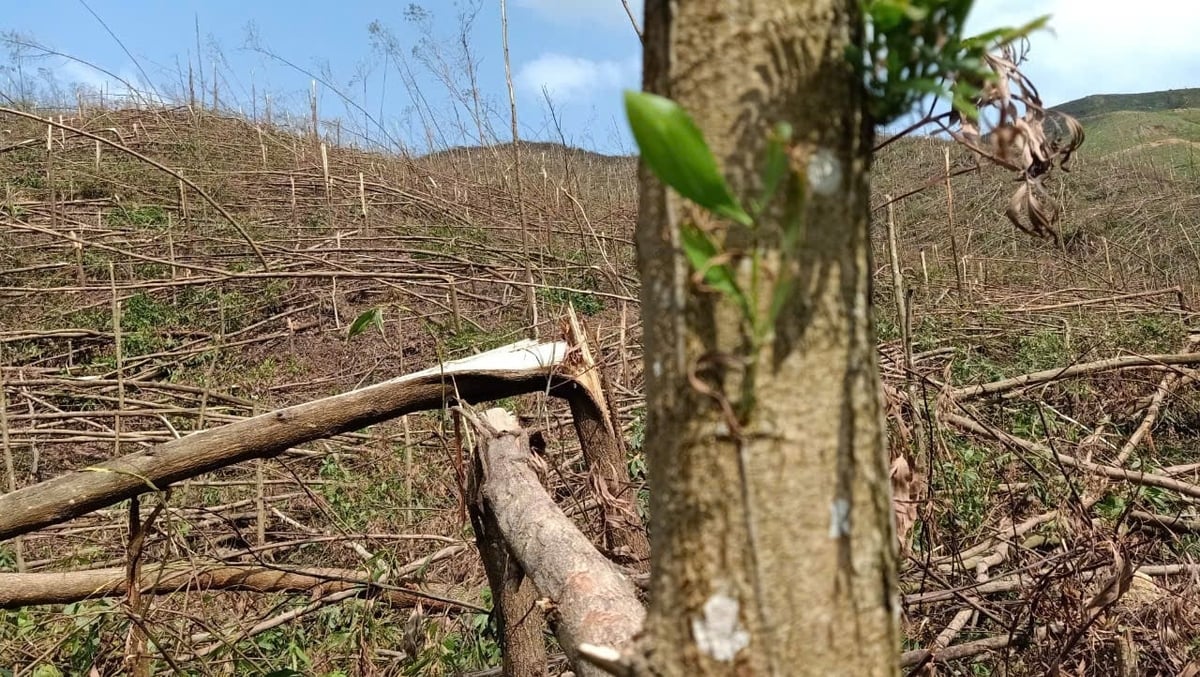
The area of timber forests for export has been damaged by storms and floods. Illustrative photo.
Looking at it from a positive perspective, economic growth driven by trade can provide financial resources for investments in climate change adaptation. It can also generate more employment opportunities, enhance the diversity of imports and exports, and reduce a country’s dependency and vulnerability to climate-related risks. Through trade, essential goods and services for implementing adaptation solutions, disaster prevention, and post-disaster recovery can be delivered in a timely manner.
Ms. Mai Kim Lien, Deputy General Director of the Department of Climate Change (MAE), emphasized that trade can become a powerful tool in supporting national and global efforts to adapt to climate change. Despite this great potential, Vietnam’s current trade policies still show significant gaps when it comes to incorporating climate adaptation elements. Therefore, it is necessary to incorporate climate change adaptation into next-generation trade agreements to better connect trade and climate resilience in a more effective and cohesive manner.
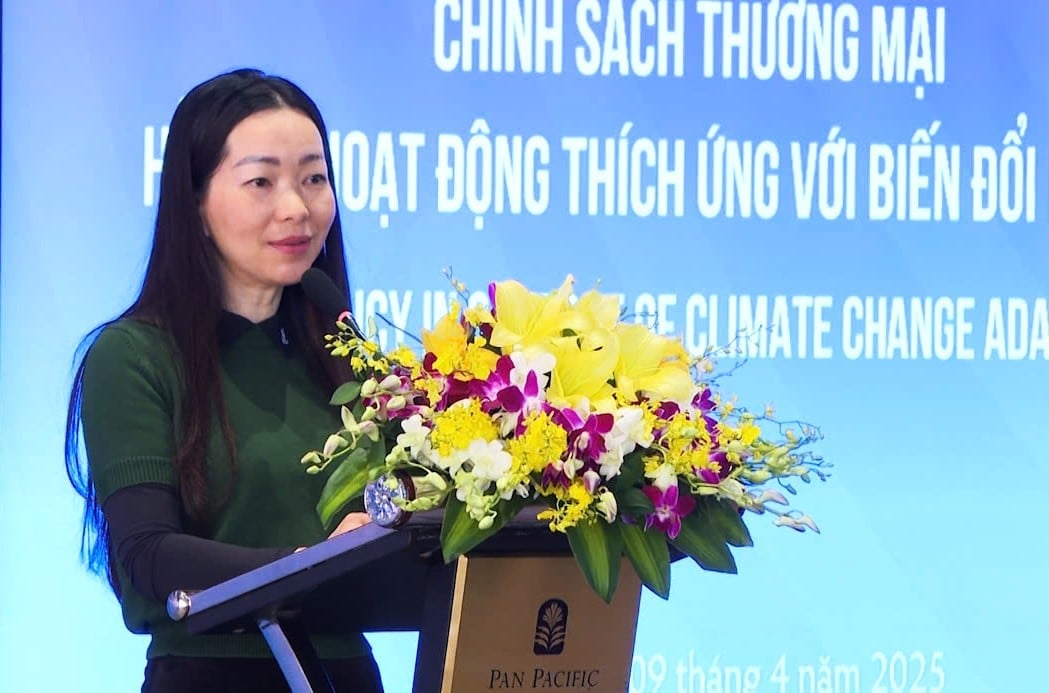
Ms. Mai Kim Lien, Deputy Director of the Department of Climate Change (Ministry of Agriculture and Environment), speaks at the workshop. Photo: Trung Nguyen.
Vietnam has developed a National Adaptation Plan (NAP) with the overarching goal of reducing vulnerability and risks associated with the negative impacts of climate change. The plan also aims to minimize losses and damages while promoting the integration of adaptation measures into relevant strategies and planning processes across sectors.
According to Mr. Tran Toan Thang from the Central Institute for Economic Management (the Ministry of Planning and Investment), the implementation of adaptation priorities outlined in the NAP presents a crucial opportunity to strengthen the link between trade and climate adaptation. He emphasized that by identifying ways to integrate these adaptation priorities into trade policies, Vietnam can better leverage the benefits of international trade to support its climate adaptation objectives.
According to Ms. Anne Hammill, Vice President of IISD, Vietnam is highly integrated into global trade but also highly vulnerable to climate risks. In this context, climate change adaptation is no longer an option; it is an urgent necessity. The agricultural sector is among the most directly affected by climate change. These impacts not only reduce agricultural output but also disrupt supply chains for raw materials that are critical to various industries, especially those tied to export markets.
International trade can offer important opportunities to support adaptation in agriculture. Through global trade channels, Vietnam can gain access to climate-resilient crop varieties and livestock breeds, advanced irrigation systems and water-saving technologies, and modern infrastructure that enhances the sector’s ability to withstand climate shocks.
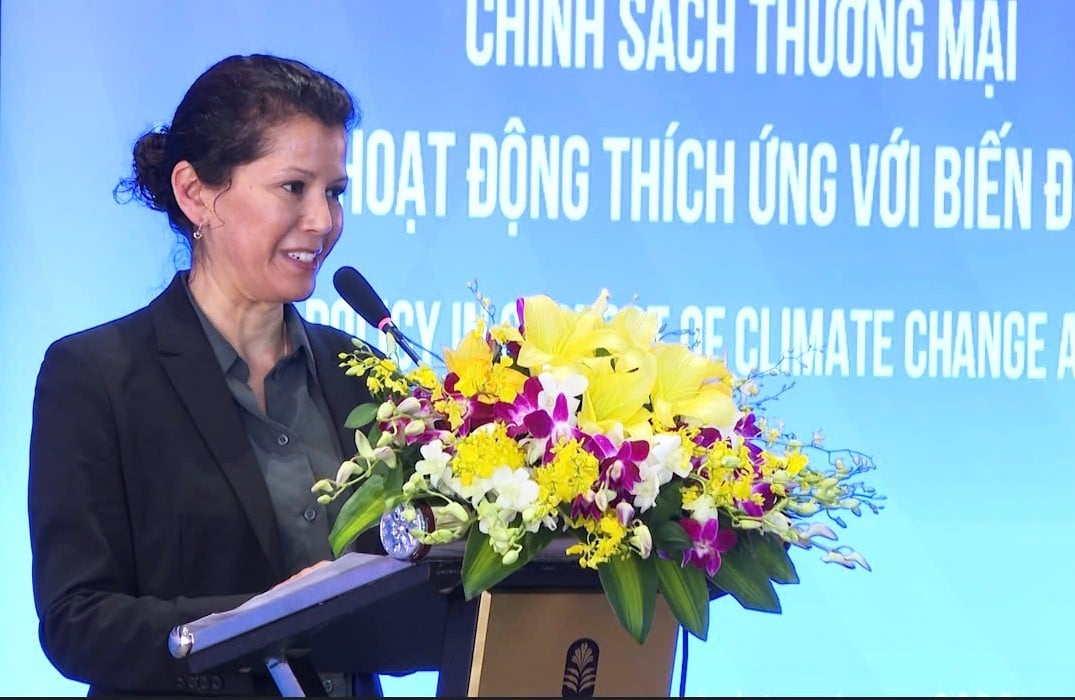
Mrs. Anne Hammill, Vice President of the International Institute for Sustainable Development (IISD), delivered a speech at the seminar. Photo: Trung Nguyen.
In the national adaptation plan, 27 priority tasks for agriculture have been outlined to address the challenges posed by climate change. Specific actions that can be implemented include the transfer of goods such as climate change-resilient crop and livestock varieties, environmentally friendly fertilizers and pesticides, water-efficient irrigation systems, advanced agricultural technologies and equipment, aquaculture breeds, animal feed, and veterinary medicines for aquatic species.
Additionally, in the services sector, priority should be given to developing and strengthening meteorological and hydrological forecasting systems, as well as early warning systems for natural disasters. There is also a need for climate risk assessments, the provision of consultation services on adaptation solutions, climate risk insurance, and agricultural extension services, along with training programs for the transfer and application of adaptation technologies.
Experts emphasize that trade policies should be adjusted to ensure that farmers and cooperatives have easier access to goods and services that are resilient to climate change. This includes creating an enabling environment for the transfer of climate adaptation technologies. Specifically, policies should connect multiple sectors and promote transparency throughout the value chain, ensuring a reliable supply of raw materials.
Looking ahead, it is anticipated that the relevant authorities will expand discussions on inter-sectoral policies, which will gradually integrate climate adaptation into broader trade policies. This will encompass the formulation of strategies, trade agreements, and both tariff and non-tariff policies.
Translated by Phuong Linh
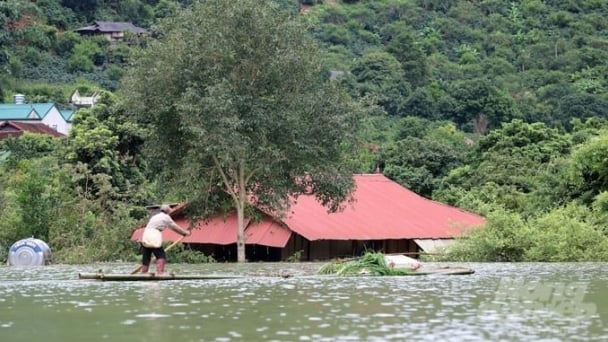
(VAN) This is an important goal that the UN-Habitat organization of the United Nations is implementing in Son La, aiming to respond to climate change and reduce disaster risks.
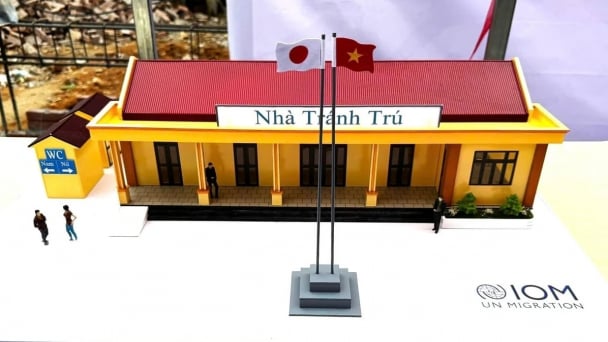
(VAN) In the context of increasingly complex climate change, the International Organization for Migration (IOM) is committed to supporting Vietnam in developing safe and sustainable migration models.
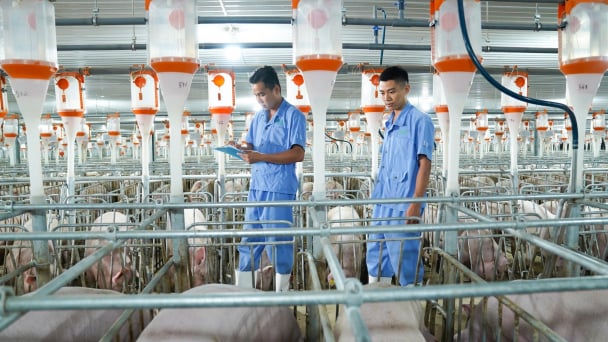
(VAN) In the second quarter, the whole sector plans to accelerate production and penetrate new, high-potential markets, including the Middle East, Africa, and Halal Islamic Countries.
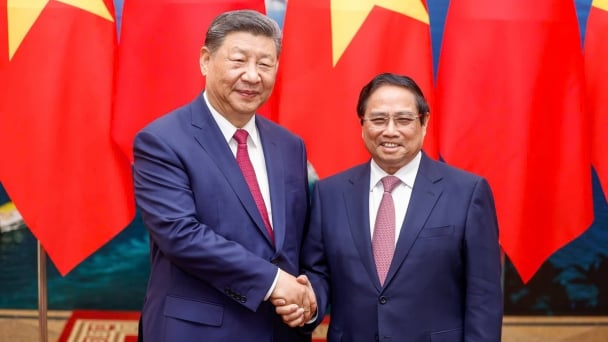
(VAN) On April 14, Prime Minister Pham Minh Chinh met with General Secretary and President of China Xi Jinping, who is on a two-day state visit to Vietnam from April 14 to 15.
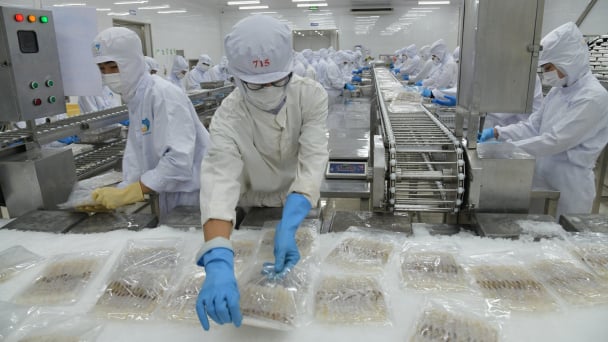
(VAN) This represents the most significant growth in the first quarter in the past four years. From January to March 2025, the export turnover of AFF products was 15.72 billion USD.
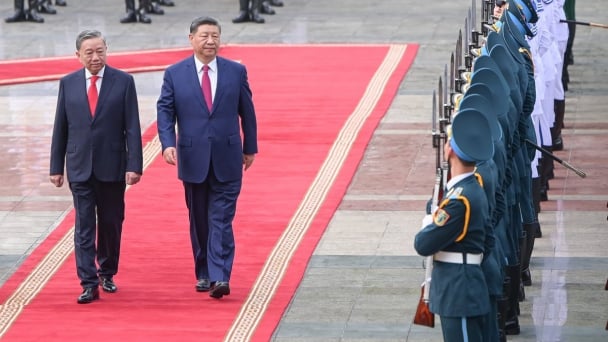
(VAN) On April 14, at the Presidential Palace, Vietnam General Secretary To Lam chaired the welcoming ceremony for General Secretary and President of China Xi Jinping, who is on a two-day state visit.
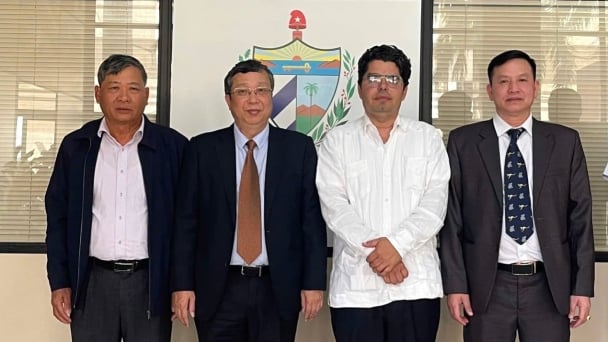
(VAN) The Vietnam-Cuba technical cooperation project to develop rice production phase 5 (2019-2025) has supported Cuba in improving varieties, increasing rice yield and quality.